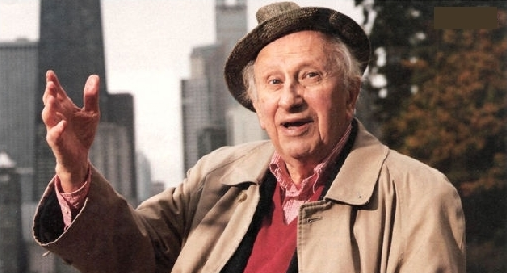about studs terkel
Spend a bit of time reading about Studs Terkel, beyond the first reading assignment. if you can:
Or watch some of his appearances on "Democracy Now," and this interview with Studs by a former colleague of mine. There's good material still on this site, from a Chicago festival celebrating Studs, and FWIW here's the text of my review of two anthologies of Studs' writing about music. Studs is a justly celebrated American figure — some unique cyborg of a journalist, a social scientist, and an incorrigible busybody. Studs was intensely interested in what made American people (all of them) think they things they thought, feel the way they did, and act the way they do. Writer Calvin Trillin rightly called him "America's preeminent listener." Trillin notes, too, that his expertise at listening was impressive given what a "prodigious talker" Studs was, too. But therein lies the method to his methodology. Notice in the excerpts you read from the Working interviews — you hardly ever see Studs in the text. Short intros set the scene for each interview subject, and very occasionally there might be the intrusion of an interview question when context demanded it; otherwise, the words you're reading are largely those of the subject. It's a good model for how to conduct an interview and present the information gathered by it: Facilitate and prod, but stay out of the interviewee's way. Studs wanted to showcase people in their element, to get as close to the truth as possible while intruding and observing. The large blocks of text that make up his books and interviews don't mean that the interviewees just rambled on uninterrupted like that. Rather, it shows how deft Studs was at asking the right kinds of questions that produced that information, as well as removing himself from the scene to the degree it's possible and applicable. As you read other Studs interviews or re-read Working, try to imagine what questions Studs asked that produced those published paragraphs. That's what you're about to do ... |
